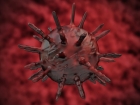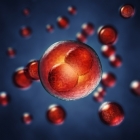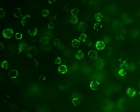Press monitoring
Study finds DNA scavengers can stop some antibiotic resistance from spreading
21.8.2024 | Press monitoring
For nearly a century, scientists have waged war on antibiotic-resistant microbes. Michigan State University researchers say they've found a new way to prevent it by unleashing "DNA – scavengers" in wastewater treatment plants. Syed Hashsham, MSU professor of civil and environmental engineering, and James Tiedje, University Distinguished...
New method uses nanoparticles to reprogram exhausted immune cells
19.8.2024 | Press monitoring
A novel study led by Prof. Mira Barda-Saad and her research team at the Goodman Faculty of Life Sciences at Bar-Ilan University has unveiled a novel method to rejuvenate natural killer (NK) cells in the fight against cancer. The study addresses a critical challenge in cancer immunotherapy – NK cell exhaustion. Recently it was discovered that the...
Beer in space: Researchers study microgravitys effect on fermentation
16.8.2024 | Press monitoring
A recent study by University of Florida researchers provides insight into how beer yeast might behave when fermented in outer space. While the concept may initially sound trivial, it has far-reaching applications, according to the study, a collaboration between researchers from the UF/IFAS food science and human nutrition department and the...
Tick-borne red meat allergy prevented in mice through new nanoparticle treatment
14.8.2024 | Press monitoring
Nanoparticles delivered intravenously in mice can block the allergic reactions to red meat caused by the bite of the lone star tick, new research led by the University of Michigan shows. The condition, called alpha-gal syndrome, is on the rise in humans as climate change and other factors have led the ticks to expand their habitat. Developed at...
3D laser printing with bioinks from microalgae
12.8.2024 | Press monitoring
Microalgae such as the diatom Odontella aurita and the green alga Tetraselmis striata are especially suitable as "biofactories" for the production of sustainable materials for 3D laser printing due to their high content in lipids and photoactive pigments. An international research team led by Prof. Dr. Eva Blasco, a scientist at the Institute...
Researchers find book scorpion venom effective against hospital germs
9.8.2024 | Press monitoring
The book scorpion (Chelifer cancroides), only a few millimeters long, is the best-known member of the pseudoscorpions, an order of arachnids, in Central Europe. It hunts house dust mites, bark lice and book lice in living spaces. It also kills pests in beehives. It often uses its venom to do so. For the first time, researchers in Hesse, Germany,...
New technology protects crops by testing the air for the DNA of plant diseases
7.8.2024 | Press monitoring
Plant infections can now be detected in our crops before they're even visible. By identifying the DNA in spores floating through the air, it's hoped a new technology called AirSeq can help farmers to tackle crop diseases more effectively while using fewer chemicals. Airborne DNA could be crucial to protecting our food security. In many cases,...
Tea brews up silver nanoparticles for wound healing in the developing world
5.8.2024 | Press monitoring
Wound infections, particularly associated with burns, are a serious health problem causing high morbidity and mortality. Globally, a huge number of deaths occur because of infected burns especially in low- and middle-income countries, and most commonly in rural areas. Research published in the International Journal of Biomedical Nanoscience and...
Genetically engineered thornless roses pave the way for better crops
2.8.2024 | Press monitoring
Crop plants such as blackberries and eggplants (along with some varieties of tomatoes, potatoes and rice) sport herbivore-deterring thorns. This makes the harvesting of their fruit laborious and time-consuming. With that problem in mind, scientists from Cold Spring Harbor Laboratory in New York and the Universitat Polit?cnica de Val?ncia (UPV) in...
Developing a nano-treatment to help save mangroves from deadly disease
31.7.2024 | Press monitoring
Mangroves and palm trees are hallmarks of the Sunshine State not just for their beauty but for their immense importance to Florida's coastlines. Mangroves are crucial because they naturally protect coastal shores from storm damage and serve as vital wildlife habitats around the world. Scientists at the University of Central Florida are working...































